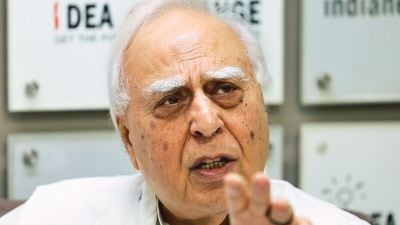Stay updated with the latest - Click here to follow us on Instagram
Pete Hegseth confirmed as US defence secretary after J D Vance’s tiebreaking vote
Vice President JD Vance was on hand to cast a tiebreaking vote, unusual in the Senate for Cabinet nominees.
 Hegseth’s confirmation marks a break from tradition, as previous defence secretaries have received bipartisan support. (AP)
Hegseth’s confirmation marks a break from tradition, as previous defence secretaries have received bipartisan support. (AP)
Pete Hegseth has been confirmed as the new US defence secretary following a rare 50-50 split vote in the Senate. Vice President JD Vance cast the deciding vote, marking only the second time in US history that a cabinet nominee needed a tie-breaker. The first instance was in 2017, when Betsy DeVos was confirmed as education secretary.
The decision is a major win for President Donald Trump but has exposed deep divisions between Republicans and Democrats. Three Republican senators—Lisa Murkowski, Susan Collins, and Mitch McConnell—joined all Democrats in opposing Hegseth’s appointment.
Concerns over experience
Hegseth, a former Fox News presenter and decorated military veteran, has vowed to bring big changes to the Pentagon. However, critics have questioned whether he has the experience to lead such a massive organisation, which has a $1 trillion budget and over 2 million personnel.
“Mere desire to be a ‘change agent’ is not enough to fill these shoes,” said Republican Senator Mitch McConnell, explaining his opposition.
During the confirmation hearings, Hegseth admitted that the largest team he had managed was 100 people, and the biggest budget he had handled was $16 million.
What were the domestic abuse claims against Hegseth?
The confirmation process was overshadowed by serious allegations. Hegseth was accused by his former sister-in-law of abusing his second wife, a claim he strongly denied. He was also linked to a 2017 sexual assault allegation, which did not lead to charges, and accused of excessive drinking and financial mismanagement during his time with veterans’ organisations.
Hegseth admitted to past mistakes but denied wrongdoing. He also promised to avoid alcohol while serving as defence secretary.
Trump puts his weight behind Hegseth
President Trump threw his full support behind Hegseth and pressured Republican senators to vote in favour. Before the final vote, Trump criticised Senators Murkowski and Collins for opposing his nominee, saying, “I was very surprised.”
Jeremi Suri, a historian at the University of Texas, said the confirmation vote shows the influence Trump holds over the Republican Party. “This vote highlights the extent of Trump’s control over the Senate and his party,” he said, as reported by Reuters.
Hegseth’s criticism of diversity programs
Hegseth’s past opposition to women serving in combat roles and his criticism of diversity programmes in the military have raised concerns. While he softened his stance on women in combat during the confirmation process, scepticism remains.
Hegseth has also been criticised for questioning the qualifications of top-ranking military officials in his book.
Challenges ahead for Hegseth as defense secretary
As defence secretary, Hegseth faces several pressing issues, including tensions with China, the war in Ukraine, and border security. Under new Trump administration orders, military planes have begun deporting detained migrants, a controversial move.
Additionally, thousands of active-duty troops are expected to be sent to the US-Mexico border, with the Pentagon preparing for further deployments.
A divisive appointment
Hegseth’s confirmation marks a break from tradition, as previous defence secretaries have received bipartisan support. For example, President Biden’s defence secretary, Lloyd Austin, was confirmed with a 93-2 vote, while Trump’s first defence secretary, Jim Mattis, was approved 98-1.
“Hegseth’s focus on bringing a ‘warrior mentality’ to the military will face significant scrutiny,” Reuters reported.
The last defence secretary nominee to be rejected was John Tower in 1989, due to concerns about drinking and inappropriate behaviour.
Hegseth’s confirmation reflects growing partisanship in US politics. As he begins his role, his ability to navigate controversies and lead the military through complex challenges will be closely watched.
(with inputs from agencies)




- 01
- 02
- 03
- 04
- 05



























